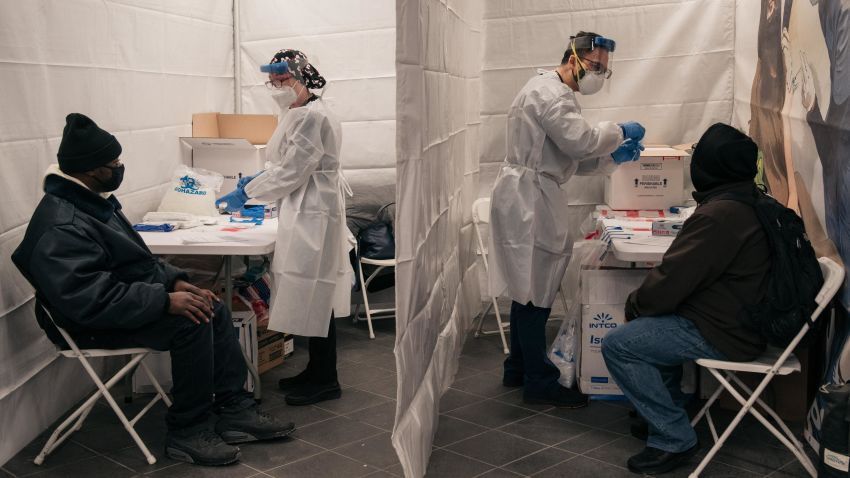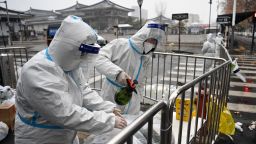Dr. Rochelle Walensky, director of the US Centers for Disease Control and Prevention, tried Wednesday to lay out what her agency’s new quarantine and isolation guidelines mean for individual Americans.
The CDC released new guidelines cutting in half the recommendations for how long people should isolate after being infected with Covid-19 and how long they should quarantine if exposed. Walensky tried to clarify these at a White House coronavirus update Wednesday and added simplified definitions.
“Let me walk you through exactly what these new recommendations mean for you. First, isolation refers to what you do when you have Covid-19, most likely diagnosed by a positive test. Isolation prevents those who are known to be infected from transmitting the virus to others,” she said.
“Quarantine, on the other hand, is different. This is what you do when you have been exposed to someone who has disease and are unsure if you yourself were infected. Quarantine prevents further spread of the virus in the time before someone may develop symptoms or from those who are asymptomatic from their infection,” she added.
“If you’re infected with SARS-CoV-2, regardless of your vaccination status, you should isolate for five days. During periods of isolation, it’s best for you to wear a mask around those in your household to avoid spreading the virus at home,” she said. “After five days, if you’re asymptomatic or if your symptoms have largely resolved, you may leave isolation as long as you continue to wear a mask around others, even in the home, for an additional five days.”
Quarantine for people exposed to the virus depends on whether people are fully vaccinated or boosted.
“If you are boosted or have been vaccinated with your Pfizer or Moderna series in the past six months or your J&J shot in the past two months, no quarantine is needed. However, a mask must be worn for 10 days following your known exposure. And we also recommend getting a test on day five after your exposure,” Walensky said.
“If you’re not vaccinated or you were vaccinated with your Pfizer or Moderna series over six months ago or with J&J over two months ago and have not yet received your booster, you should quarantine for five days following your last exposure. After five days, you should continue masking around others for an additional five days, and you should also get a test at day five,” she said.
“If it’s not possible for you to quarantine, it is really important that you do the right thing and wear a mask at all times around others for 10 days after your exposure. Here, we also emphasize that you should get a test at day five. And if at any point you develop symptoms of Covid-19 during your quarantine period for your 10 days after exposure — like fevers, runny nose, a cough, headaches or body aches — you should get a test and isolate until your test results return. And of course, then isolate if your test returns positive.”
The CDC did not include many recommendations for using quick at-home tests because it’s not clear that they tell whether a person is likely to transmit the virus to others, Walensky said.
“On the other hand, we know that after five days, people are much less likely to transmit the virus and that masking further reduces that risk. And this is why people need to mask for five days after their five days of isolation. This science, as well as what we know about the protection provided by masking, vaccination and booster doses and about our testing programs, are all part of what informed our updated recommendations.”


